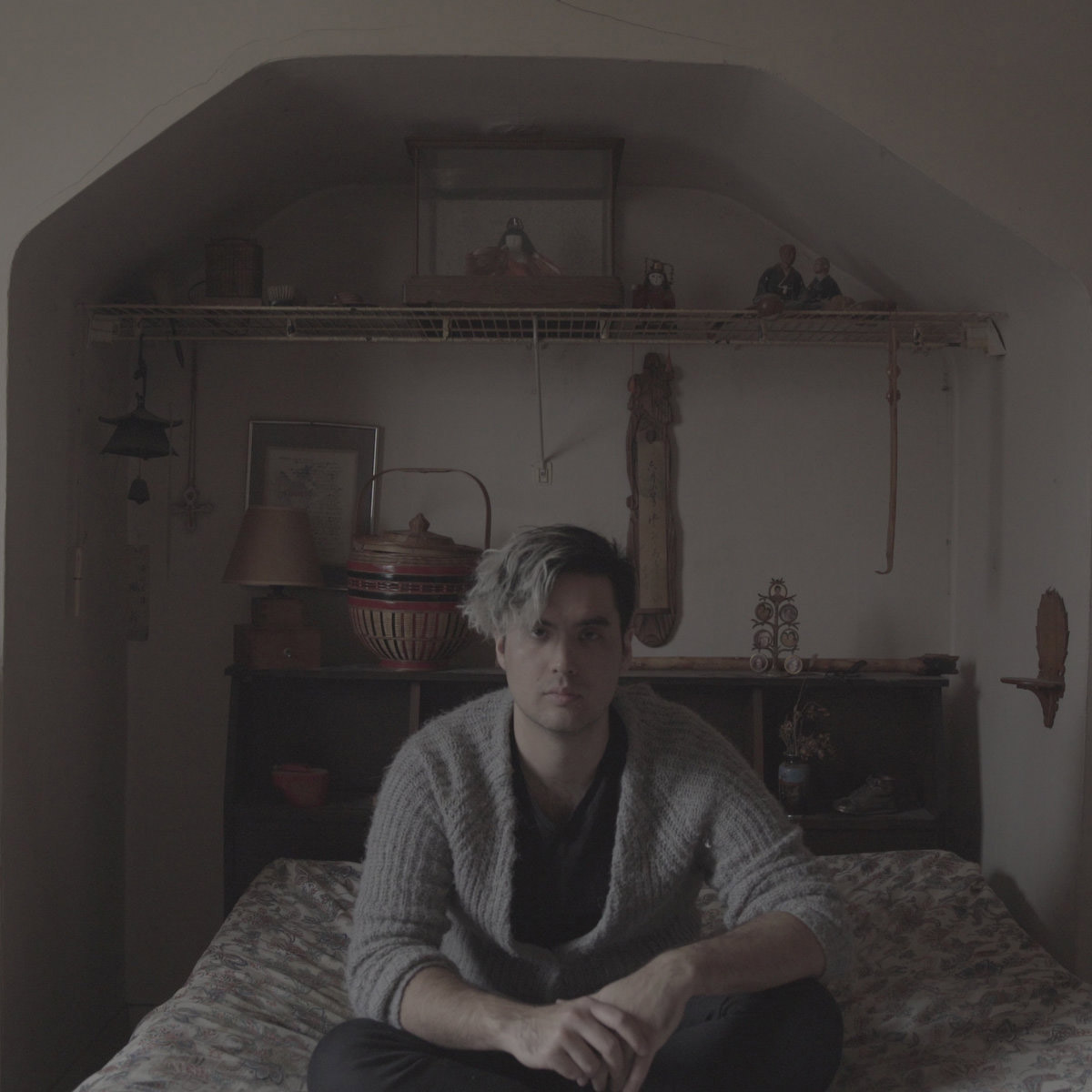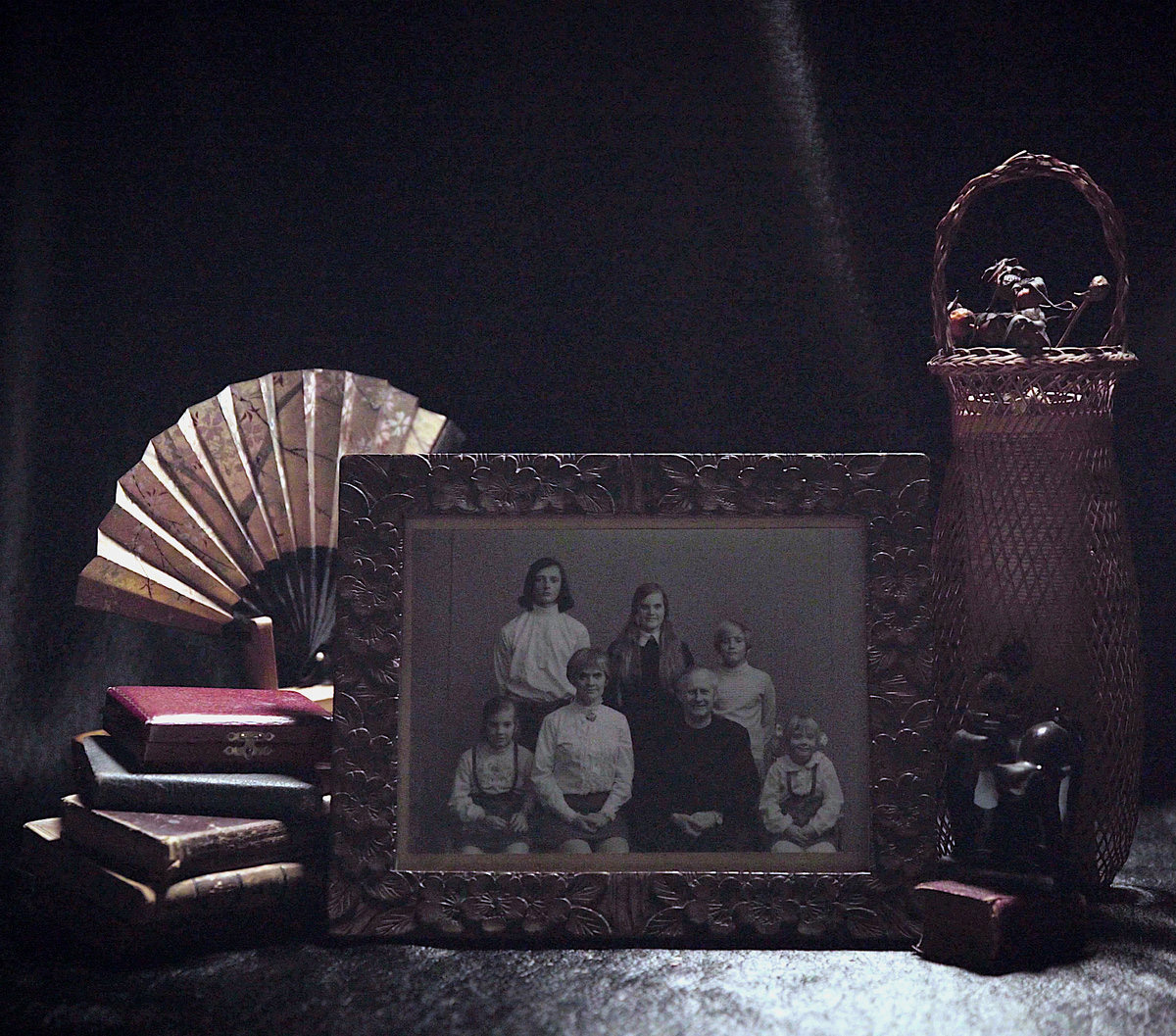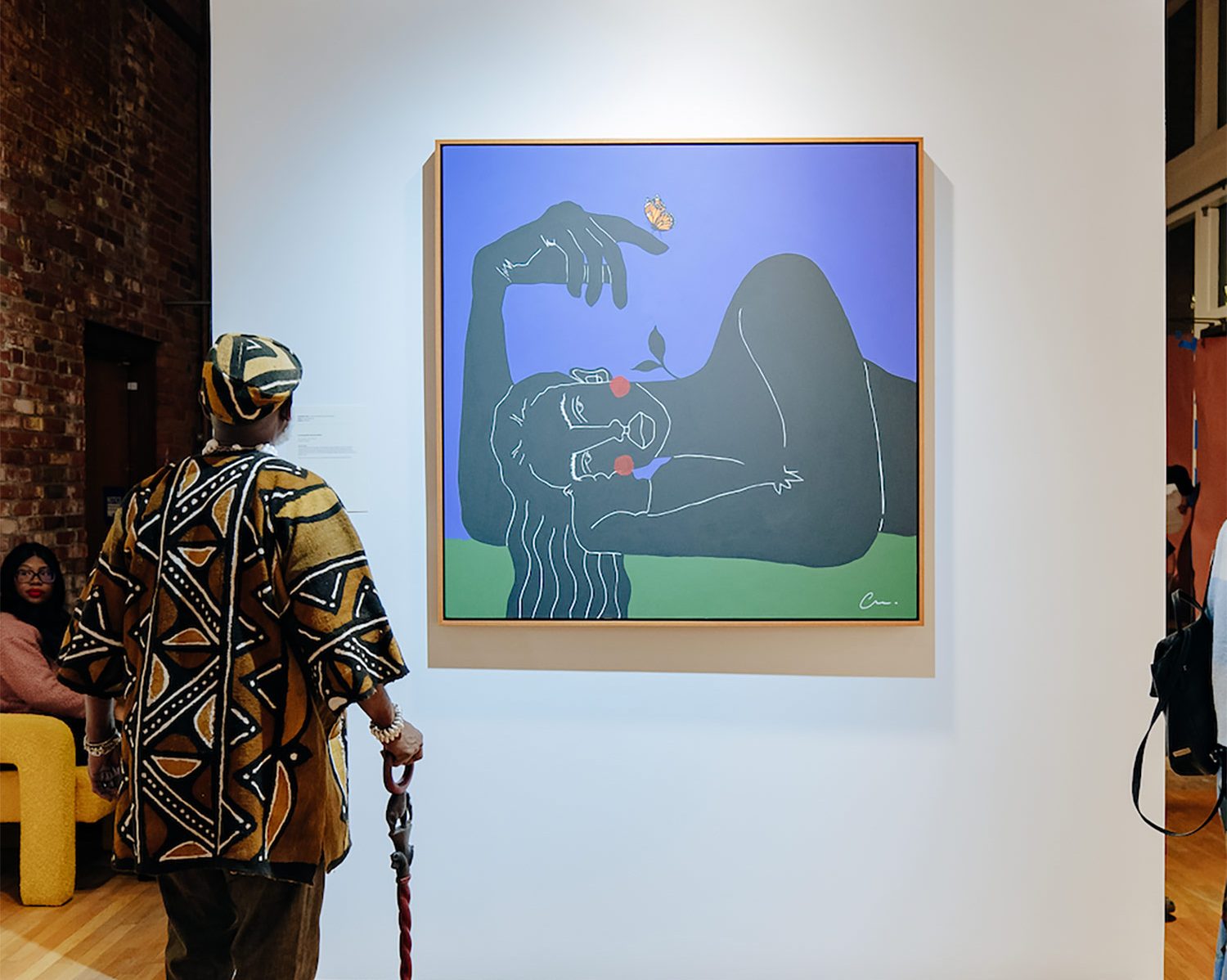
“As I saw my relatives go through the last stages of their lives, you really see — from their own admission… what they valued in their lives; what ends up becoming the core values when a lot of the accoutrements of our modern day living kind of fall to the wayside,” Tanaka explains. “My uncle was crying out the love for his children on the day that he died. These are the kind of things that are really important to us.”
Tanaka now finds himself in a bit of a “circle of life situation.” Between a full-time job, an album launch, and a new baby, he emerged from the caretaking experience with a true desire to focus on his family and his own life. This is made all the clearer during an otherwise challenging year.
“Trying to build a foundation of love and family and the quotidian or daily mundane joys that living can bring: those are sort of the things that I have held onto and really derived joy and energy from in times of global catastrophe, I suppose,” he explains.
The origins of Kaigo Kioku Kyoku were influenced by a collection of found sounds and field recordings — including one of a Japanese choir which would regularly visit the elder care facility where his grandmother was housed, later used on the album’s debut single, “Blue-Eyed Doll” — and recordings and interviews collected by his sister, who was studying to become a psychotherapist. “Bare Hallways,” the album’s opening track and the first track that Tanaka worked on, was inspired by a recording of his grandmother gently singing “Jesus Tender Shepherd Hear Me,'” an old hymn he had grown up with.
In the track’s release notes, Tanaka writes, “‘Bare Hallways’ was written as I was reflecting on my experience as a caregiver for my grandmother, and the feeling that everything was slowly falling apart. My grandmother’s Alzheimer’s was inevitably growing worse, the house was falling into disrepair, and the family had started the very necessary process of clearing out what items they could get away with, without sending my grandmother into a panic.”

Hear me
Save her memory
In the Hallway
Calling for meI see the shadow
Of her past rising
Small hands shaking
It’s cold and lonelyIn the end
In the end
In the end
In the end
In the endMaking
Her bed each evening
Softly speaking
I put her to sleepIn the house that
I was born in
Watching crumble
Into bare hallwaysIn the end
In the end
In the end
In the endHiroki Tanaka – “Bare Hallways”
When Tanaka eventually showed the track to his partner Maya, she and many others encouraged him to pursue the project further. Thus, the rough demo for “Bare Hallways” laid the foundations for the record’s creation — a process which unexpectedly ramped up even as his relatives declined in health.
After receiving a diagnosis of six months left to live, Tanaka’s uncle passed away from prostate cancer in the latter half of December 2018. Tanaka had already applied to play a small inter-arts event series called Long Winter — and to his surprise, was offered the opportunity to play a show that month. He agreed — and despite the fact that he only had five minutes of material, somehow managed to expand his set an additional twenty-five minutes in only two weeks’ time. Building off a tender and mundane interview between his sister and grandmother, Tanaka created the nearly ten-minute-long “Snowdrops,” which also included his reading of “I Have Good News” by Northern Calfornia-based poet, Tony Hoagland, who had passed away just a couple months earlier.
Hiroki Tanaka – “Snowdrops”
When you are sick for the last time in your life, walking around, shaky, frail with your final illness, feeling the space between yourself and other people grow wider and wider like the gap between a rowboat and its dock- You will begin to see the plants and flowers of your youth.
And they will look as new to you as they did then, little lavender bouquets arranged in solar systems delicate beyond your comprehension: the dark gold buttons with the purple manes; the swan-white throat splashed with radish-colored flecks; the threadlike stalks that end in asterisks.
They are where you left them, by the bus stop bench; along the chain-link fence behind the widow’s house. And you shall squat down on your haunches and gaze at them, just as you did before.
Because this restitution of your heart is coming, you need not fear the indignities of death and growing old. The synagogue of weed-head will be your evidence that every moment is not trampled by the march of all the rest.
It doesn’t matter if you end up angry and alone, pulling the trigger of the morphine feed repeatedly; it doesn’t matter if you die whimpering into the railing of the hospital bed; refusing to see visitors, smelling your own body in the dawn.
The dark ending does not cancel out the brightness of the middle. Your day of greatest joy cannot be dimmed by any shame.
Tony Hoagland – “I Have Good News”
“It’s so similar: Hoagland’s experience,” says Tanaka. “Tony Hoagland suffered from pancreatic cancer. My uncle had prostate cancer, and they both passed away at age 65 from cancer… so it all just kind of came together in this — you know, that kind of mysterious way that art kind of comes together all at once.”
Tanaka managed to perform at Long Winter, even though he was devastated on the inside. Much of his set was improvised in the moment.
“I wasn’t even sure what I was going to do at the beginning of ‘Snowdrops,’ but all of a sudden, I started singing ‘sakura‘ at the beginning, and then that just kind of became one of the main features of that song, too,” he recalls. “It was a very powerful time, and I still get emotional just thinking about it and how everything kind of came together like that.”
His performance also proved powerful for the audience.
“One guy who played in a band after me came up to me after my show… and said, ‘Wow, my grandmother passed away not too long ago, and your music made me feel something that I don’t think really had a chance to think about,’ and I just kinda looked at him and said, ‘Thank you,'” Tanaka recalls.
That experience, and others like it, have since helped him clarify the importance and impact of Kaigo Kioku Kyoku, perhaps even beyond his initial impulse for making it.
“Having an opportunity to create an album that helps connect with people in a way that makes them look at their own emotions and confront emotions that they don’t necessarily are comfortable with exploring and public with other people is something that I have always valued,” he explains. “I am particularly proud of the fact that I have really been able to pull it off with this album — that I have really been able to create something that I think touches people.”

She’s sick on the bed sheets
They’re soaked all way through
I’ll wash it all
Wash it all away
Wash it all
Wash it allI’m frightened she’s dying
But if I make the call
They’ll take it all
Take it all away
If I break they’ll just take it all awayWhy can’t I hold this time in place
My mind might be weak
If at least I believedThere’s nothing I want more
Than to take pain away
I clasp my hands I clasp my hands
For you
And you’ll forget, you’ll forget me too
And youHiroki Tanaka – “Inori” (“Prayer”)
Kaigo Kioku Kyoku‘s greatest strength lies in its honest and unflinching portrayal of death and grief. Rather than shying away from Western taboos of speaking openly of one’s last moments, the album chronicles the stark realities of caretaking and expresses them directly, even when uncomfortable. It manages to find power within its vulnerability.
“Caregiving is looked down upon [here], and I guess I want to fight… that whole concept,” says Tanaka, who points out that it is much more normalized in Japan and other Asian societies. “Creating this album, too, is a direct protest to the notion that caregiving and the kind of compassion work and emotional labor work is the kind of stuff that isn’t as valuable as the success-obsessed capitalist entrepreneurship that people tend to espouse.”
Tanaka, however, is quick to recognize that his experience as a young caregiver was one with relative privilege, as he received a fair amount of support from his family.
“I know that some people… become caregivers for their parents or their relatives, and the whole family just kind of goes, ‘Oh, thank you so much,’ and then no one actually talks to them and just leave some fend for themselves…” he laments. “I hope I can spread that awareness and we can start combating the general attitudes towards caregiving — the discomfort that it causes and the reaction that relatives will have towards that discomfort, which is just sort of to separate themselves from that sort of situation. It’s all very unhealthy.”
Part of this goal may stem from Tanaka’s own experience and self-dialogue when he first moved back into his grandmother’s home. The first emotions he felt were ones of embarrassment and shame, as he temporarily pigeon-holed himself as an adult who had failed because he was unable to afford the high rent in Toronto.
“I had to grapple with that in those initial stages,” he says. “And then, at some point… this deep-seated anxiety that I’ve had all my life about growth and success and the pursuit of independence and stuff like that…. started sort of crumbling, and what was left was just me having to acknowledge that I was whatever this was. You know, this person who was looking after my grandmother and really trying to love my grandmother and give her as much care as I could. And I guess trying to derive some sort of self-esteem and self-identity and power out of that, as opposed to just trying to create this double-self, where I was going out and playing shows and rock n’ roll, punk rock, whatever, stupid bullshit.”
Tanaka believed those reflections forced him to shed a lot of pretense and to ultimately become a better person because he focused on making music that was less about satisfying his own ego and more trying to create something from the challenging life experience. The transformation has led to the shedding of some insecurities, fear, and trauma that he has held his entire life, so that Tanaka can, as he explains, “become someone who’s capable of handling the immense burdens of living and the pains of existing and of losing someone who you love, and finding love, and trying to nurture life.”
“Without that shedding — without that sort of rebirth and that experiencing that kind of cycle of life, it’s really difficult to be capable of handling all those many facets of life…” Tanaka continues. “To just kind of admit that, ‘Yeah, I’m just this weird guy who is just looking after my grandma.’ You know, you may not be the best conversationalist at a party, but I’m working through something way more important.”
Despite such tragedy, Tanaka shares that he is now the happiest that he has ever been, because he has realized how much he has to value while still living. Kaigo Kioku Kyoku, likewise, will go on to speak for the many caregivers who may not have a public voice, serving all the while as a reminder that there is much healing to be found in speaking openly about our pain.

Stream Kaigo Kioku Kyoku
Ω





